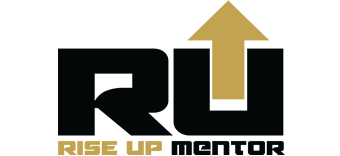 https://riseupmentor.com/wp-content/uploads/2023/12/Motivate-17-Live-Today-as-Tomorrow-Is-Uknown-1920x1080-No-Logo.jpg
1080
1920
Rise Up Mentor
https://riseupmentor.com/wp-content/uploads/2023/12/RiseUpMentor-Black-Logo-340x156-1.png
Rise Up Mentor2023-12-16 03:45:132023-12-16 03:45:15Ep. 34: Live Today as Tomorrow is Unknown
https://riseupmentor.com/wp-content/uploads/2023/12/Motivate-17-Live-Today-as-Tomorrow-Is-Uknown-1920x1080-No-Logo.jpg
1080
1920
Rise Up Mentor
https://riseupmentor.com/wp-content/uploads/2023/12/RiseUpMentor-Black-Logo-340x156-1.png
Rise Up Mentor2023-12-16 03:45:132023-12-16 03:45:15Ep. 34: Live Today as Tomorrow is UnknownProper planning and managing time effectively are essential skills that can boost productivity, reduce stress, and pave the way for success in various areas of life. In today’s fast-paced world, where we often handle multiple responsibilities, being able to plan strategically and use our time wisely is more important than ever. Proper planning and time management can significantly impact our ability to achieve goals efficiently and reach our full potential. Today I want to discuss the significance of these skills, emphasizing their benefits and the potential drawbacks of neglecting them. Plus, I want to some tips for helping you plan, manage and optimize your time. Effective planning sets clear goals, breaks them down into manageable tasks, and establishes a timeline. It helps us prioritize activities and allocate resources like time and energy. Planning lets us anticipate challenges, make contingency plans, and stay on track. With a well-designed plan, we approach tasks confidently, knowing our efforts are purposeful and
aligned with our objectives. Proper planning goes hand in hand with managing our time well. Time is limited, and how we use it directly affects our productivity and results. Time management means knowing what’s important, making deliberate choices about how we spend our time, and optimizing our daily routines for maximum efficiency. When we handle our time effectively, we can achieve more in less time, kick procrastination to the curb, and minimize distractions. By setting realistic deadlines and sticking to them, we build discipline and create a positive flow that propels us towards success. Moreover, good time management helps us strike a healthy balance between work and personal life, giving us space for hobbies, relaxation, and self-care. This prevents burnout and promotes overall well-being.
On the flip side, ignoring proper planning and neglecting effective time management can bring about undesirable consequences. Without a clear roadmap, we might wander aimlessly, reacting to urgent matters instead of actively pursuing our goals. This lack of direction can result in wasted time, heightened stress levels, and an overwhelming sense of being adrift. Inadequate time management can lead to missed deadlines, decreased productivity, and compromised quality of work. Insufficiently allocating time to various tasks and responsibilities can create a never-ending cycle of last-minute rushes, more mistakes, and escalating stress. Moreover, an imbalance between work and personal life can result in burnout, strained relationships, and a diminished overall well-being.
Tips for helping plan tasks, managing and optimizing your time
- Prioritize and grouping tasks: Being great at prioritizing is worth the time it takes to do so in gold. Properly prioritizing allows you to determine what needs to be done and what can wait until later, this helps with both time and load management. When it works and makes sense group similar tasks together and complete them in batches.
- Keep a To-Do List: Maintain a to-do list to keep track of tasks and priorities. Update it regularly and review it at the start and end of each day. This ensures you don’t miss any important tasks and helps you stay organized. For this you could carry a small notepad if you prefer that method, for me I found that note apps on my cell phone are helpful. Again, the using a calendar can app can also be useful when it makes sense.
- Create a Daily Schedule: Plan your day in advance by creating a detailed schedule. Allocate specific time blocks for different activities, including work, family time, personal development, and relaxation. Stick to your schedule as much as possible. For this I like to use the calendar on my phone. It’s easy to set up re-ocurring events with a notification to help keep me on track.
- Eliminate Time Wasters: Identify activities that consume excessive time without adding value to your life. These may include excessive social media browsing, watching too much TV, or engaging in unproductive conversations. Minimize or eliminate these time wasters.
- Learn to Say No: Understand your limits and don’t be afraid to decline requests or commitments that don’t align with your priorities. Saying no allows you to protect your time and focus on what truly matters.
- Avoid Procrastination: Procrastination can lead to increased stress and reduced productivity. Break tasks into smaller, manageable parts and tackle them one at a time. Use techniques like setting deadlines, setting rewards for completion, or finding an accountability partner to help you overcome procrastination.
- Take Breaks When Needed: Breaks are essential for maintaining productivity and preventing burnout. Plan short breaks throughout your day to relax, stretch, or engage in activities that rejuvenate you. Stepping away from activities temporarily can actually improve your overall efficiency.
- Learn to Delegate: If you have family members or close friends who can assist, delegate tasks and responsibilities when you feel overloaded. Effective delegation not only frees up your time but also helps develop the skills and capabilities of others.
- Reflect and Adjust: Regularly review your schedule and approach to identify areas for improvement. Reflect on how you spent your time, assess what worked and what didn’t, and make necessary adjustments to your schedule and strategies.
Victor Hugo said “He who every morning plans the transactions of that day and follows that plan carries a thread that will guide him through the labyrinth of the most busy life.”
To sum it up, proper planning and efficient time management are essential assets that pave the way to success and contentment in both our personal and professional lives. By dedicating time and effort to honing these skills, we attain a sense of command, alleviate stress, and optimize our productivity. Through effective planning, we empower ourselves to establish clear goals, devise strategies, and navigate obstacles that come our way. Likewise, adept time management ensures that we allocate our most precious resource—time—in a manner that maximizes our accomplishments and well-being. By embracing these practices, we unlock our full potential and make the most of the fleeting moments life grants us.
































